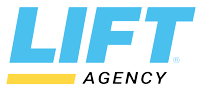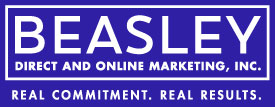Special Fall Pricing: Regularly $1,190 is now 50% off—$595. Enroll here.
Special Fall/Winter Pricing: Regularly $1,190 is now 50% off—$595. Enroll here.
Introduction:
Sustainability is one of the most significant conversations in business today alongside AI, and embedding the right mindset and practices into marketing requires rethinking through a sustainable lens. Like digital transformation, the shift will entail bringing the right or new skills and a new way of thinking and working. Demand for green jobs and skillsets is increasing, as highlighted by the World Economic Forum’s Future of Job Report 2023, with data collaboration with LinkedIn, “The fastest-growing roles relative to their size today are driven by technology, digitalization, and sustainability.” Sustainable transformation is more than a trend and is becoming an imperative for organizations and marketers to understand.
Businesses are under increasing pressure from investors, regulators, employees, and society to lead the way in driving a more sustainable future, and with that comes the opportunity to make bold commitments and establish new sustainable markets that give back to people, the planet, and profit. With a significant role in promoting and driving sustainability, marketers sit at the heart of brand, communications, stakeholders, and product development. However, the marketing profession has long been seen as the end of an organization’s funnel and growth engine, driving demand and consumption. Marketers now have the opportunity to use their skills and powers for good, and transparency and authenticity are critical. Greenwashing is no longer being ignored; regulations and guidelines are tightening, and marketers have to ensure they are educated and aware of protecting their brand’s reputation, build trust, and feel confident that the claims they are making are considered, substantiated, and demonstrate commitment to the triple bottom line.
After completing this three-part masterclass, you’ll be among the first marketers in the United States to receive a Certificate in Sustainable Marketing. Use this certificate to enhance your resume and LinkedIn profile with a digital badge we’ll provide you. We’ll send you a frameable printed certificate to hang on your office wall. These classes also count toward the 8-course Certificate in Digital Marketing requirement.
Module 1 of this 3-part masterclass is a scene-setter focusing on the changing operating environment, how regulation and mandatory reporting are evolving, and what this means for business and marketers. It explores the challenges but, more importantly, the opportunities for marketers to be part of the solution in building sustainable markets and shaping new behaviors.
Module 2 focuses on greenwashing, which, together with ‘green hushing,’ is on the rise and bringing with it negative attention. The tightening of regulations and guidelines reflects the further erosion of trust, which businesses must rebuild. While the responsibility sits with the organization, the spotlight shines more brightly on marketing as communicators and storytellers, so education and awareness are essential when navigating environmental claims.
Module 2, the final part of this masterclass series, dives into sustainable marketing, exploring what it looks like and how to do it. Sustainable marketing isn’t about reinventing marketing but rather about rethinking all the guises of marketing through a responsible lens. This class examines words and language, how effective communication motivates, the need to change behaviors, and marketing’s carbon footprint.
(Can’t attend the live workshop? No problem. These workshops are recorded, and we’ll send you the recording, workbook, and supplementary materials within a day of completion after we’ve had time to edit the recording.)
Module 1: Sustainable Marketing–The future of business and business for the future?
$595: Enroll here (prerecorded).
Description:
Sustainable marketing, what is it, and why is it important?
It is important that we set the scene and understand that the landscape we are operating in is changing, the power across the stakeholder chain has shifted, and mandatory reporting and new regulations are coming, which will force change in the very near future. Marketing has (and still does) played a significant part in the problem (driving consumption and shaping unsustainable behaviors in a culture of instant gratification, all of which leave unmanageable levels of waste behind). However, the opportunity for marketers to be a significant part of the solution should not be underestimated. With a broader understanding of what is happening around us and in the wider landscape beyond products and services, marketers can start to apply that knowledge toward supporting the transition to a more sustainable future, building sustainable markets, and shaping new behaviors.
Key Takeaways:
- An understanding of the operating environment at a Macro level (not in detail—this is an awareness course to open minds and stretch thinking). We’ll explore.
- Where are we now?
- What is sustainability?
- UN Sustainable Development Goals—why they’re important.
- Paris Climate Agreement—why is it relevant to marketing?
- Regulations, guidelines, and reporting—what we have now and what’s coming.
- The B-Corp movement—why it’s gathering momentum.
- Race to Zero, the UN global campaign—business has joined the Paris Agreement.
- Climate change and decarbonization—the most urgent target.
- The Circular economy—the opportunity for new markets.
- What all the above means for business and marketing, and its role as a catalyst for change.
- The challenges but, more importantly, the opportunities for marketers.
- How marketers have a big (and exciting) role to play in transitioning to a more sustainable future.
- Where to get started using the ‘Inwards / Upwards / Outwards’ sustainable marketer action plan.
Module 2: Greenwashing 101.
$595: Enroll here (prerecorded).
Description:
What it is and how to navigate it.
Greenwashing, the practice of making misleading environmental claims, is on the rise, and it’s being called out in a major way, whether via social media platforms, ‘brandalism,’ or through the legal system. This can have a detrimental and damaging impact on the brand, brand reputation, engagement, and trust. From a legal perspective, where businesses don’t comply with consumer protection law, consumer protection agencies may bring court proceedings. We’ll explore greenwashing, what it is, why it happens, and how it shows up. Looking at examples and case studies, this workshop will equip marketers with what they need to know, essential checkpoints, and what they need to do to navigate the world of green claims to ensure they don’t fall foul of being called out by an increasingly more aware society. Marketers need the knowledge to make informed decisions and be responsible for what they say is authentic, substantiated, and linked to evidence.
Key Takeaways:
- What is greenwashing?
- Why does it happen?
- Awareness of the ever-increasing regulation/guidelines and consumer protection and the consequences of breaking them.
- Understanding of the risks of not being aware of your organization—reputation, culture, and future.
- Acknowledgment of the growing awareness of consumers who are calling it out.
- Being able to identify it—how does it show up?
- What to be aware of and considerations when—discussing claims, agreeing to claims and making claims.
- Know what marketers need to do—the role and responsibility.
- Advice and direction—when to ask for it and what to do with it.
Module 3: Sustainable marketing in action.
$595: Enroll here (prerecorded).
Description:
Sustainable marketing in action—rethinking marketing—what it looks like, how to do it.
From the inside—Sustainable Marketing sits within the heart of the business, communicating and aligning organizational purpose, values, and brand across the entire value chain of a business. Collaborating and communicating with many different people within the organization and cascading key narratives throughout to ensure that the messages and brand narrative that runs through the organization or leaves the organization, is clear, consistent, and aligned.
From the outside—Sustainable Marketing has a keen curiosity about the dynamic landscape within which a business operates. Custodians of customers, understanding the changing needs, desires, and actions of people, competitors, and partners—keeping pace with innovation, insights, data, and opinion—and bringing those insights back into the business to support and inform both long- and short-term strategic direction.
Sustainable marketing is marketing—but through a responsible lens, designed to meet the needs of the changing landscape, public opinion, and changing policy and regulation to better serve people and the planet as well as profit. Championing marketers to feel great about the work they do, using their skills, creativity, and influence as a force for good.
Key Takeaways:
- Understand the challenges and opportunities for brand and reputation.
- An understanding of what this means for marketing strategies and plans.
- Identify Marketing’s own carbon budgets, explain them with context and examples, and explain how marketing needs to manage them as part of organizational decarbonization commitments.
- The power of effective communication and what that looks like are all supported by examples and case studies.
- A look at who is doing it well and some of the reasons why.
- A greater awareness of the language they use and why it is so important.
- The channels and tactics involved and how to use them efficiently and aligned to the sustainable agenda.
- The need to shape new mindsets and behaviors—what consumers want—is backed up by research and reports.
- Know how to engage and the benefits of ongoing conversation over broadcasting.
How to Convince Your Boss Why You Should Take this Class:
Businesses are under increasing pressure to lead the way in driving a more sustainable future, and with that comes the opportunity to make bold commitments and establish new sustainable markets that give back to people, the planet, and profit.
- The landscape is changing – stakeholder awareness and demands are increasing – For society, Porter Novelli Sustainability Research 2022 highlighted that 84% are “extremely or somewhat concerned” for the future of the planet.
- For consumers demand is increasing – research recently released from NYU Stern Center for Sustainable Business (CSB) found that not only are sustainability-marketed products growing twice as fast as conventionally marketed products, but they are also selling at a premium of 28%, on average and, “while sustainability-marketed products make up only 17.3% of total sales, they are responsible for 30% of the growth in the sector.”
- For employees – the desire to work for organizations who align with their values continues to rise – Paul Polman’s (ex-CEO of Unilever) survey of 4,000 UK and US employees showed that “two-thirds of employees were anxious about the environment and wanted their companies to take a stronger stance on it, and half were willing to quit over a mismatch of ethics.”
- There is a significant rise in ‘green’ jobs and a growing sustainability skills gap that needs to be filled. The World Economic Forum, Future of Job Report 2023 revealed – “The largest job creation and destruction effects come from environmental, technology and economic trends.” With, the fastest-growing roles relative to their size today are driven by technology, digitalization, and sustainability.”
- Regulation, policy, and reporting are evolving—with a growing need for evidence and clarity being called for by consumers and regulators when making environmental claims or communicating on sustainability.
- Greenwashing is no longer being ignored—don’t fall foul of it, protect your brand reputation, build trust, and feel confident that the claims you are making are considered, substantiated, and demonstrate your commitment to the triple bottom line.
- Equip your marketing teams to use their skills, creativity, and influence as a force for good, unlocking innovative solutions, new ways of thinking, and better ways to communicate that goes beyond your products and services.
The Presentations:
- The workshops are hands-on and practical.
- The workshops are live so that you can ask your questions. If the course doesn’t fit in with your calendar, you can take the course as a recorded class.
- Step-by-step instructions are in numbered lists with links so you can do this yourself.
- Included are lots of illustrations and examples.
Download Material:
- Video of the presentation with slides and audio.
- Recommended podcast episodes from Can Marketing Save the Planet.
- Access to the Sustainable Marketer Action Plan.
- Access to Sustainable Marketing models—traditional models, hacked through a sustainable lens.
- Access to the Can Man Marketing Save the Planet Learning Zone and 100 points challenge.
- Become a supporter of the Sustainable Marketer Manifesto.
- List of questions to ask and actions to consider.
Who is the course for?
This course is for Marketing Executive Management and Social Media, Marketing, PR, Digital, and Content Marketing Managers who are responsible for managing the social media presence of their company. Also, for account managers of Social Media and Digital agencies.
The Presenter:
Gemma Butler

Gemma Butler teaches courses at the Direct Marketing Association of Northern California in a three-module series that leads to a Certificate in Sustainable Marketing. The courses focus on the challenges but, more importantly, the opportunities for marketers to be part of the solution in building sustainable markets and shaping new behaviors. Sustainable marketing isn’t about totally reinventing marketing but rather about rethinking all the guises of marketing through a responsible lens.
- Currently, I am the co-founder of Can Marketing Save the Planet Ltd, a company on a mission to support responsible marketing by educating and supporting approximately 10.6M marketers on the planet. Gemma also teaches for the Chartered Institute of Marketing and Cambridge Judge Business School, the executive business school of the University of Cambridge.
- 2 x published author with Bloomsbury, ‘Sustainable Marketing—How to Drive Profits with Purpose’ and soon to be released (Jan 2024), ‘Can Marketing Save the Planet? 101 Practical Ways to Use Sustainable Marketing as a Force for Good.’
- Creator and co-host of the podcast series, Can Marketing Save the Planet? A podcast series that interviews a wide range of guests (including Philip Kotler and Seth Godin) about all things sustainable, with the objective of raising awareness and highlighting the significant role marketing plays in driving a more sustainable future.
- Written/contributed to multiple publications—Raconteur’s Special Report, The Drum, Sustainability Magazine.
- Certified Carbon Literate by the Carbon Literacy Project.
- Awarded ‘‘Outstanding Contribution to Marketing’ in 2022 for driving sustainable marketing transformation by Women in Marketing Awards.
- Starting her career in product marketing at Xerox and value proposition development and product marketing at Sony, Gemma went on to become the Marketing Director at the Chartered Institute of Marketing – representing and informing the marketing profession, driving the importance of professional development and educating and inspiring the next generation of marketers.
- Keynote speaker and panelist at multiple events, webinars, and conferences for both universities and businesses.
- BA Hons Degree in English Literature and Linguistics—University Portsmouth.
- Website: https://www.canmarketingsavetheplanet.com/.
- Social Media: https://www.linkedin.com/in/butlergemma/.
Workshop dates and times:
FALL
Module 1: Sustainable Marketing: The future of business and business for the future?
Thursday Sep 26, 2024 09:00 AM – 11:00 AM PDT
Module 2: Greenwashing 101.
Thursday Oct 10, 2024 09:00 AM – 11:00 AM PDT
Module 3: Sustainable Marketing in Action.
Thursday Oct 24, 2024 09:00 AM – 11:00 AM PDT
FALL/WINTER
Module 1: Sustainable Marketing: The future of business and business for the future?
Monday Nov 18, 2024 09:00 AM – 11:00 AM PST
Module 2: Greenwashing 101.
Monday Dec 02, 2024 09:00 AM – 11:00 AM PST
Module 3: Sustainable Marketing in Action.
Monday Dec 16, 2024 09:00 AM – 11:00 AM PST





